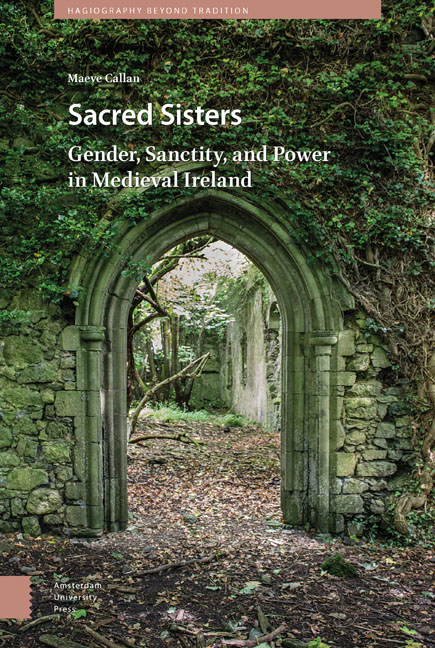Book contents
- Frontmatter
- Dedication
- Contents
- List of Figures
- Preface
- Introduction
- 1 “Founded upon the Rock Which is Christ”: What Patrick and His Promoters Reveal about Women in the Early Irish Church
- 2 “A New and Apostolic Band of Virgins Arose”: Darerca, an Exceptionally Learned Abbess
- 3 “The Safest City of Refuge”: Brigid the Bishop
- 4 “God is Always Present with Those who Exemplify Such Devotion”: Íte, Foster-Mother of the Saints of Ireland
- 5 “Do not Harass my Sisters”: Samthann, an Abbess not to be Crossed
- 6 “I Place Myself under the Protection of the Virgins all Together”: Sister Saints with Something Like a Life
- Conclusion
- Appendices
- Appendix A The Sites
- Appendix B The Sources
- Appendix C Feast Days of Early Medieval Irish Female Saints
- Appendix D Glossary
- Appendix E Pronunciation of Personal Names
- Bibliography
- Index
6 - “I Place Myself under the Protection of the Virgins all Together”: Sister Saints with Something Like a Life
Published online by Cambridge University Press: 24 November 2020
- Frontmatter
- Dedication
- Contents
- List of Figures
- Preface
- Introduction
- 1 “Founded upon the Rock Which is Christ”: What Patrick and His Promoters Reveal about Women in the Early Irish Church
- 2 “A New and Apostolic Band of Virgins Arose”: Darerca, an Exceptionally Learned Abbess
- 3 “The Safest City of Refuge”: Brigid the Bishop
- 4 “God is Always Present with Those who Exemplify Such Devotion”: Íte, Foster-Mother of the Saints of Ireland
- 5 “Do not Harass my Sisters”: Samthann, an Abbess not to be Crossed
- 6 “I Place Myself under the Protection of the Virgins all Together”: Sister Saints with Something Like a Life
- Conclusion
- Appendices
- Appendix A The Sites
- Appendix B The Sources
- Appendix C Feast Days of Early Medieval Irish Female Saints
- Appendix D Glossary
- Appendix E Pronunciation of Personal Names
- Bibliography
- Index
Summary
Abstract
The final chapter explores several prominent fifth- through seventh-century female saints who do not have surviving medieval vitae but who help broaden our understanding of the complexity and empowering aspects of female religious experience in medieval Ireland. Three have early modern adaptations of medieval Lives or legends. Lasair was so renowned for her wisdom that Finnian of Clonard's own Life claims her as his student. She also shows that women could unleash some seriously righteous wrath, while also being a source of comfort and healing. Attracta, said to be a contemporary and associate of Patrick, was particularly active in County Sligo, where she is well-remembered in several churches and wells. Her legend celebrates her ability to slay dragons and resurrect the dead. Cranat emphasizes connections with the earth, as her eyes are said to have become trees, one devoured piece by piece by the desperate hopes of Ireland's emigrants in the mid-nineteenth-century, as it was said to protect the bearer from drowning; another survived and indeed thrived into the last century. Cranat sacrificed her eyes to retain control over her body and fate, to remain a nun rather than become a wife. Gobnait inspired many legends attesting to her great holiness and harmony with animals and nature, but none survive from the medieval period. Medieval litanies and calendars invoked her protection and honored her memory, but her preservation is primarily a credit to the importance that her monastic site, Ballyvourney, retained through the centuries as well as to oral traditions and cultural customs that accompanied her cult. The chapter finishes with Dígde, the probable poet behind one of Ireland’s most celebrated poems, Aithbe damsa bés mara, or “The Lament of the Old Woman of Beare.” Her poem may preserve an authentic echo of a medieval Irishwoman's perspective; its haunting, complex, and evocative beauty and frank sensuality challenge assumptions about gender and sanctity and provides striking contrast to claims made by hagiographers.
- Type
- Chapter
- Information
- Sacred SistersGender, Sanctity, and Power in Medieval Ireland, pp. 157 - 186Publisher: Amsterdam University PressPrint publication year: 2019



